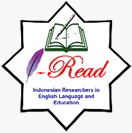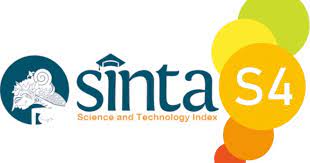Emerging TPACK & Digitalization in Education for Sustainable Development: Voices of Secondary Education Teachers
DOI:
https://doi.org/10.22219/englie.v4i2.27112Keywords:
Digitalization, Perspectives, Secondary Education, Sustainable Development, TPACKAbstract
One of the frameworks used nowadays to incorporate technology into the teaching and learning process is technological pedagogical and content knowledge (TPACK). The investigation of teachers' TPACK, specifically their comprehension, process, and obstacles in a classroom context, has not received much research, though. In order to better understand TPACK and digitalization in the secondary education classroom, this study will examine it from the viewpoints of teachers. The information was gathered from three teachers who were at Thursina IIBS Malang, East Java, Indonesia. The study's methodology included a qualitative study. The researchers used a triangulation of data sources, including interviews, observations, and documents, to collect their responses. The verbatim transcriptions of the interviews data were followed by a thematic analysis. The results of the current study reveal four key issues, including teachers' understanding of TPACK, the acquisition of TPACK, teacher perceived level of digital literacy and teachers' challenges with TPACK. The teachers utilized a variety of ways to acquire TPACK, and they had different perspectives on TPACK. However, applying TPACK presented many benefits for the teachers. The results of this study may have an impact on how teachers should proceed with their professional development.
Downloads
References
Ary, Donal, et al. 2010. Introduction to Research in Education (Eighth Edition). United States of Amerika: Wadsworth.
Baran, E., Chuang, H.H. & Thompson, A. (2011). TPACK: An Emerging Research and Development Tool for Teacher Educators. Turkish Online Journal of Educational Technology, 10(4), 370-377. Retrieved July 29, 2023 from https://www.learntechlib.org/p/53332/.
Blundell, C., Lee, K., & Nykvist, S. (2016). Digital learning in schools: conceptualizing the challenges and influences on teacher practice. Journal of Information Technology Education: Research, 15, 535- 560.
Boyce, C., & Neale, P. (2006). Conducting In-Depth Interviews: A Guide for Designing and Conducting In-Depth Interviews for Evaluation Input. PathfinderInternational
Brundtland, G.H. (1987) Our Common Future: Report of the World Commission on Environment and Development. Geneva, UN-Dokument A/42/427.
Chai, C. S., Koh, J. H. L., Tsai, C., & Tan, L. L. W. (2011). Modeling primary school pre-service teachers’ Technological Pedagogical Content Knowledge (TPACK) for meaningful learning with information and communication technology (ICT). Computers & Education, 57(1), 1184-1193. https:// doi.org/10.1016/j.compedu.2011.01.007.
Creswell, J. W. (2012). Educational research: Planning, conducting, and evaluating quantitative and qualitative research. 4th ed. New Jersey: PearsonEducation, Inc.
Drajati, N.A., Tan, L., Haryati, S., Rochsantiningsih, D., & Zainnuri, H.(2018). Investigating English language teachers in developing TPACK and multimodal literacy. Indonesian Journal of Applied Linguistic, 7(3), 575-582. Retrieved from https://www.researchgate.net/publication/323047453_Investigating_ English_language_teachers_in_developing_TPACK_and_multimodal_ literacy
Gladwin, T.N., Kennelly, J.J., Krause, T.S., 1995. Shifting Paradigms for Sustainable Development: Implications for Management Theory and Research. Academy of Management Review, Volume 20(4), pp. 874–907
Harris, J. B., & Hofer, M. J. (2001). Technological Pedagogical Content Knowledge (TPACK) in action: A descriptive study of secondary teachers’ curriculum-based, technology-related instructional planning. Journal of Research on Technology in Education, 43(3), 211–229. Retrieved from https:// files.eric.ed.gov/fulltext/EJ918905.pdf
Isler, C., & Yildirim, Õ. (2018). Perceptions of Turkish Pre-Service EFL Teachers on Their Technological Pedagogical Content Knowledge. Journal of Education and Future, 13, 145-160.
Jen, T., Yeh, Y., Hsu, Y., Wu, H., & Chen, K. (2016). Science teachers’ TPACK- Practical: Standard-setting using an evidence-based approach. Computers & Education, 95, 45-62. https://doi. org/10.1016/j.compedu.2015.12.009.
Mishra, P., & Koehler, M. J. (2006). Technological Pedagogical Content Knowledge: A Framework for Teacher Knowledge. Teachers College Record, 108(6), 1017–1054. https://doi.org/10.1111/j.1467-9620.2006.00684.x
Sousa, M. J., & Rocha, A. (2018). Digital learing: Developing skills for digital transformation of organizations. Future Generation Computer Systems (91), 327- 334. doi: 10.1016/j.future.2018.08.084
Taopan, L. L., Drajati, N. A., & Sumardi. (2020). TPACK Framework: Challenges and opporunities in EFL classrooms. Research and Innovation in Language Learning, 3(1), 1-22. Retrieved from http://jurnal.unswagati.ac.id/index.php/RILL/article/download/2763/pdf
Thornberg, R. (2008). The lack of professional knowledge in values education. Teaching and Teacher Education, 24, 1791-1798. doi: 10.1016/j.tate.2008.04.004
Wulandari, E. (2019). Teacher’s Technological Pedagogical Content Knowledge in developing learning materials. Lingua Pedagogia, Journal of English Teaching Studies, 1(1), 29–45. Retrieved from https://doi.org/10.21831/lingped. v1i1.23983
Yang, C., & Ersanl, Õ. (2015). The relationship between students’ academic self-efficacy and language learning motivation: A study of 8th graders. Procedia - Social and Behavioral Sciences, 199, 472–478. https://doi.org/10.1016/j.sbspro.2015.07.534.
Downloads
Published
How to Cite
Issue
Section
License
Copyright (c) 2023 Dian Asmi Setoningsih

This work is licensed under a Creative Commons Attribution-ShareAlike 4.0 International License.
Authors who publish with English Learning Innovation (englie) agree to the following terms:
- For all articles published in English Learning Innovation (englie), copyright is retained by the authors. Authors give permission to the publisher to announce the work with conditions. When the manuscript is accepted for publication, the authors agree to automatic transfer of the publishing right to the publisher.
- Authors retain copyright and grant the journal right of first publication with the work simultaneously licensed under a Creative Commons Attribution-ShareAlike 4.0 International License that allows others to share the work with an acknowledgement of the work's authorship and initial publication in this journal.
- Authors are able to enter into separate, additional contractual arrangements for the non-exclusive distribution of the journal's published version of the work (e.g., post it to an institutional repository or publish it in a book), with an acknowledgment of its initial publication in this journal.
- Authors are permitted and encouraged to post their work online (e.g., in institutional repositories or on their website) prior to and during the submission process, as it can lead to productive exchanges, as well as earlier and greater citation of published work (See The Effect of Open Access).
This work is licensed under a Creative Commons Attribution-ShareAlike 4.0 International License.
















1.png)












